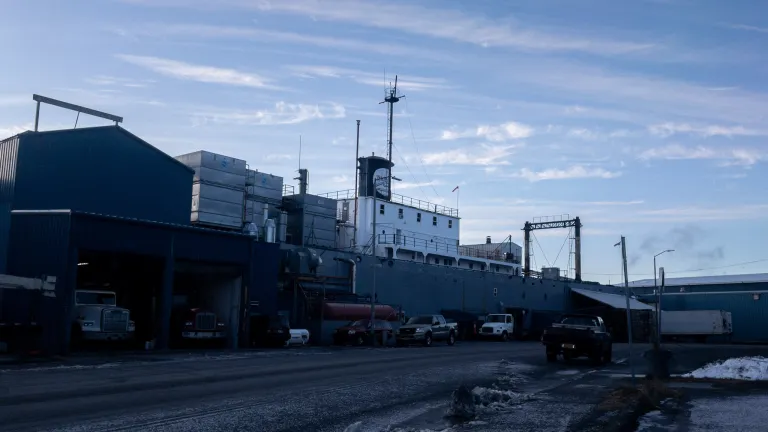
Trident Seafoods, one of the biggest seafood processors in the country, announced Tuesday that it’s selling a third of its Alaska plants. Four of Trident’s processing plants in Alaska are now for sale – in Kodiak, Ketchikan, Petersburg, and False Pass.
The company also announced a significantly scaled-back winter season for its year-round plant in Kodiak. The historic Diamond NN Cannery in South Naknek and the company’s support facilities in Chignik will either be retired or sold as well, according to a company statement.
Multiple fishers contacted by KMXT said the move was a huge surprise.
Trident spokesperson Alexis Telfer, declined to comment, saying they’re focusing on their employees and fishing fleets at this time.
The announcement comes on the heels of a reduced fall salmon fishing season across most of the state and just a month ahead of the opening of Kodiak’s Tanner crab season, which is expected to be the second largest harvest for that species in decades.
There’s a storm of issues in seafood markets right now – processors have offered fishers some of the lowest prices for their harvest in years, sparking standdowns and protests across the state. The Alaska Seafood Marketing Institute’s conference in November pointed to declining demand for seafood, huge harvests, and foreign competition as some of the key problems.
In a press release, Trident blamed similar reasons for its move to sell and claimed the plants for sale in Southeast Alaska and on the Alaska Peninsula better aligned with other operators’ strategies for the state. The seafood processor also announced it would delay building a processing plant in Unalaska earlier this year.
The company’s cost-cutting efforts also include laying off about a tenth of its corporate staff.




